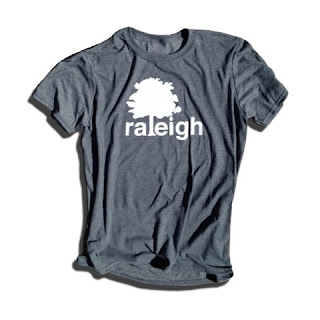The Rihanna
An article in The Guardian reports that Rihanna has successfully stopped Topshop from selling a shirt with her image.
The article, by Paula Cocozza, does a terrific job of explaining the circumstances which led to Rihanna having been able to accomplish what many other celebrities have not. Here is an excerpt,
"But what makes Topshop's sale of this T-shirt wrong? The world is
full of unofficial merchandise, and Rihanna – as for all of us – does
not own the copyright to her face. (Though she could try to trademark
it, as Damon Hill once did with the image of his eyes staring out of his
helmet.) The rights will have been owned by the photographer, who must
have licensed or sold his image to Topshop. So what is the difference
between straightforwardly reproducing an image on a T-shirt and "passing
off"? "The question is simply this," says Mike Brookes,
a lawyer who specialises in entertainment dispute resolution at Lee
& Thompson. "If you walk into Topshop and see that T-shirt, do you
think that it is an official, Rihanna-endorsed T-shirt, or do you think
that it is a piece of merchandise that someone else is selling without
her approval?" In this case, the judge decided that the former is true.
Brookes says that there are three elements to proving passing off. The
claimant needs to have established a reputation. The defendant needs to
have misled the public. And third, there needs to have been damage. "I
suspect that the argument will be that for every person who buys a
Topshop Rihanna T-shirt it does them out of a sale of an official one,"
says Brookes."
Cocozza continues,
"Rachel Cook, an associate at Fox Williams,
read the 16-page Rihanna judgment and says that this "was very much a
case of specifics". The Topshop tank shows Rihanna wearing a
dungaree-strap bra top – the same outfit that she wore on the video for We Found Love,
albeit one of about 47 outfits, each of which you get to see for a few
seconds. (See it here at 2:57 seconds.) The photograph was taken
unofficially during the shoot in Northern Ireland. "The judge was
talking about the way they [Topshop] were using it, the time they were
using it. It almost looked like the marketing campaign for that record."
Plus, Rihanna has an active endorsement programme, having designed a clothes line for River Island."
Capitalizing on a State Capitol
Contrast the Rihanna story with recent news from
newsobserver.com about the achievements of a small Raleigh, North Carolina based company called
Fouryou Designs. In the article, Joe Fitzpatrick, owner of Fouryou Designs says that before he started his company, he created what he calls the "Raltree" shirt because he "wanted an original design not found in the Raleigh area." After many compliments, Fitzpatrick decided to see if the shirt would sell; soon after this, Fouryou Designs was born, and the report is, "business is booming".
Both the Rihanna and Raltree shirts have garnered publicity. But, while a picture of a celebrity will attract attention, using it can be a gamble. An original design has the upside that it will not make your company susceptible to law suits. The difficulty for any designer is creating an original design that will possess the gravitas needed to sell. Using a celebrity image is a shortcut to mass appeal, and may lead to quick sales. But creating an original design that catches the eye can lead to long term branding. The key to success in any business is finding a niche, and building a business model that allows the exploitation the of upside potential of that niche with maximum efficiency and minimal risk. One could say that

designers who are looking to make the most of their designs would do well to incorporate the most lean rendition of their business model into their design. Creativity and practicality both have a part to play in t-shirt design. One key pertinent attribute that is shared by both the Raltree, and the Rihanna is that they each transcend the t-shirt, appealing to an idea that is bigger than the design itself. If Rihanna weren't who she is, and if Raleigh were not a beloved city to so many, then the shirts would most assuredly not have seen the sales numbers that they did. Bottom line, profitable designs are smart; they take into consideration the business they represent, and the culture they attempt to charm.
Read more here: http://www.newsobserver.com/2013/07/31/3070583/raleigh-t-shirt-designer-displays.html#storylink=cpy






